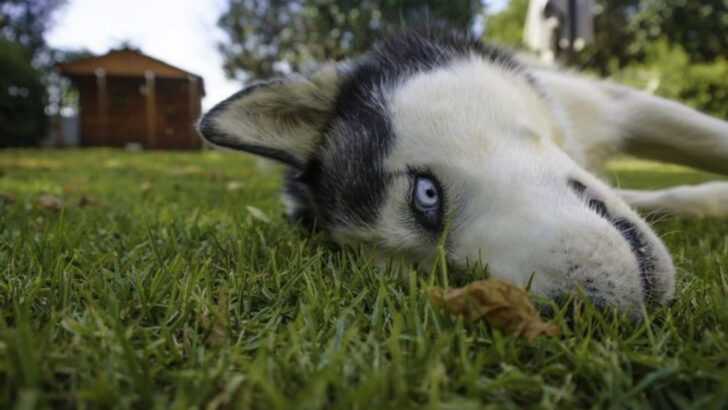Some dogs were born to lead, not follow. No matter how much training, how many treats, or how loud your commands are, they just won’t listen.
From the stubborn bulldog to the rebellious husky, these pups have mastered the art of selective hearing. They march to the beat of their own drum—and it can drive any dog owner to the brink of madness.
But don’t lose hope just yet. While they may not always obey, these dogs have personalities that make them unforgettable. They are independent, fearless, and as charming as they are challenging. Ready to meet the 20 dog breeds that will make you question your ability to train? Prepare yourself for a wild, hilarious, and maybe even frustrating ride!
Basenji
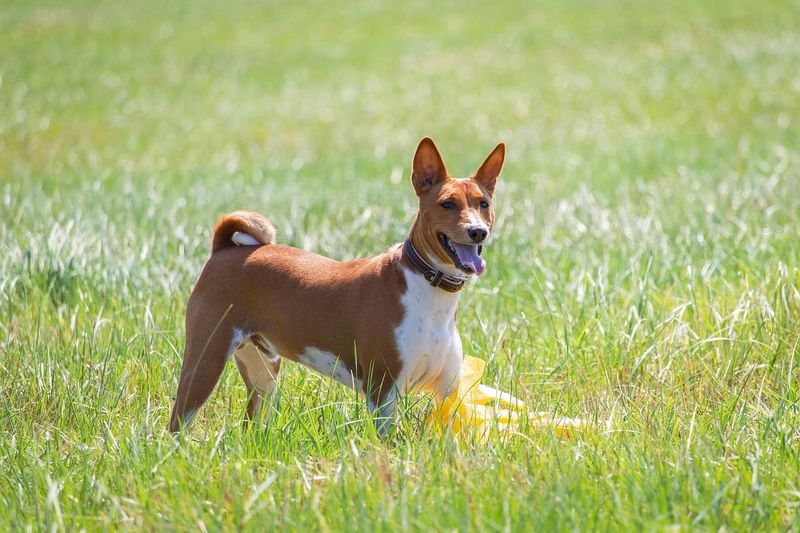
The Basenji is often referred to as the “barkless dog.” This breed is known for its independent personality and can be quite stubborn. Owners often find that Basenjis are more like cats in their demeanor, choosing when to respond to commands.
Their aloof nature makes them a breed that requires patience and understanding. Training a Basenji can be a challenge, as they prefer to do things their own way.
However, with consistent and positive reinforcement, owners can manage their Basenji’s stubbornness, making them wonderful companions.
Chihuahua

Chihuahuas may be small in size, but they possess a larger-than-life attitude. Known for their feisty and bold nature, these dogs often choose to ignore commands that don’t suit them.
This breed can be particularly headstrong, often testing the limits of their owners’ patience. Socialization from a young age is essential to manage their stubborn streak.
Despite their willful nature, Chihuahuas are fiercely loyal and can be excellent companions when given the right guidance and training. Their small stature hides a big personality.
Dachshund

Dachshunds are known for their playful yet stubborn disposition. Originally bred for hunting, they have a strong prey drive and independent spirit.
Their determination can make training a test of patience, as they often like to think for themselves. This breed responds best to fun and engaging training sessions that capture their interest.
Consistency is key when training a Dachshund, and with the right approach, they can be both obedient and delightful pets. Despite their stubbornness, they are loving and enjoy human companionship.
Beagle
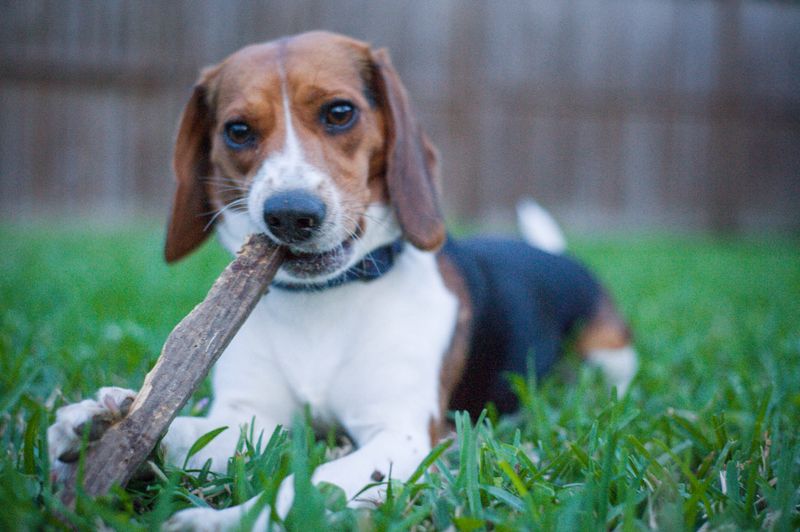
Beagles are friendly and curious, but their strong sense of smell often leads them to ignore commands. Bred as scent hounds, they are easily distracted by scents.
Training a Beagle requires patience, as their nose often takes precedence over listening. Early obedience training is crucial to manage their independent nature.
With the right guidance, Beagles can learn to focus on tasks. Despite their stubborn side, they are loving pets, known for their cheerful disposition and sociable nature.
Bulldog

Bulldogs are known for their laid-back and stubborn nature. They often choose relaxation over action, ignoring commands that don’t fit their mood.
This breed requires a firm but gentle approach to training, rewarding them with treats and praise to encourage compliance. Bulldogs are lovable companions, known for their docile temperament.
Consistency and patience are essential when training Bulldogs. Despite their stubborn tendencies, they are affectionate and loyal pets, always ready to share a moment of companionship.
Akita

Akitas are known for their dignity and independence. This breed can be very stubborn, often making their own decisions rather than following commands.
Owners need to establish themselves as consistent leaders to earn an Akita’s respect and cooperation. Early training and socialization are crucial for this breed.
Despite their independent streak, Akitas are incredibly loyal to their families. With the right training approach, they can be both obedient and protective companions, forming strong bonds with their owners.
Jack Russell Terrier
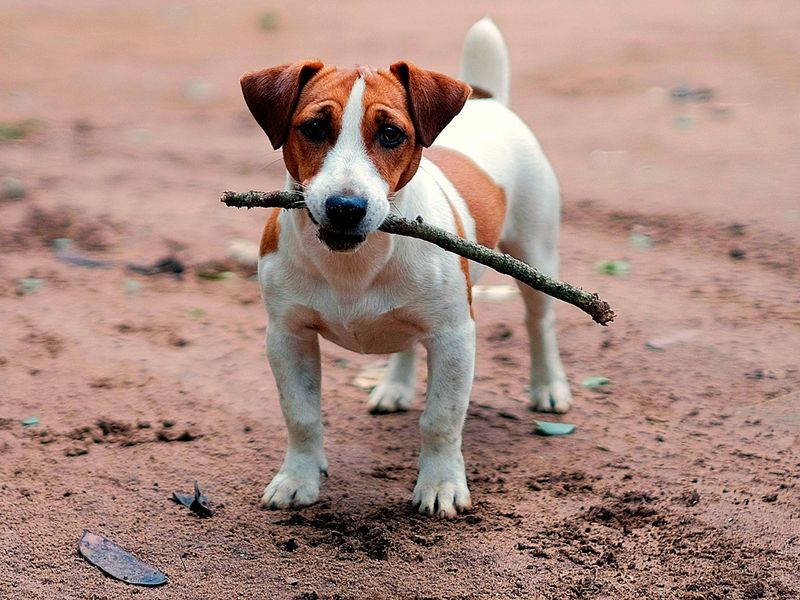
Jack Russell Terriers are energetic and intelligent, but their independence can make training a challenge. Known for their high energy and determination, they often act on their instincts.
This breed requires consistent and engaging training methods to keep them focused. Mental stimulation is key to managing their stubbornness.
Despite their headstrong nature, Jack Russells are lovable and loyal pets, thriving in active environments where they can burn off energy and engage in fun activities.
Shiba Inu
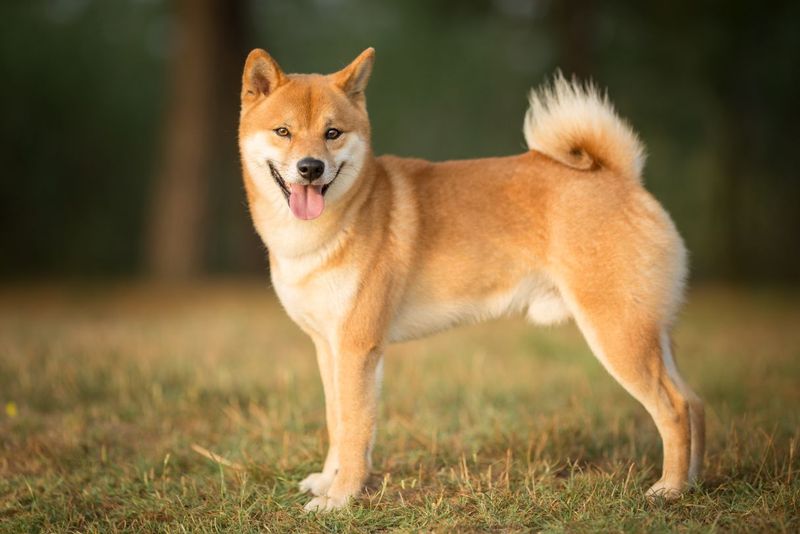
Shiba Inus are known for their independence and aloof nature. They often choose to follow their own path, ignoring commands that don’t interest them.
Training a Shiba Inu requires patience and positive reinforcement. Consistency is key to earning their cooperation.
Despite their stubbornness, Shiba Inus are clean and quiet dogs, making them desirable companions for those who appreciate their unique personality and dignity. They are loyal to their family and can form strong bonds with the right guidance.
Afghan Hound
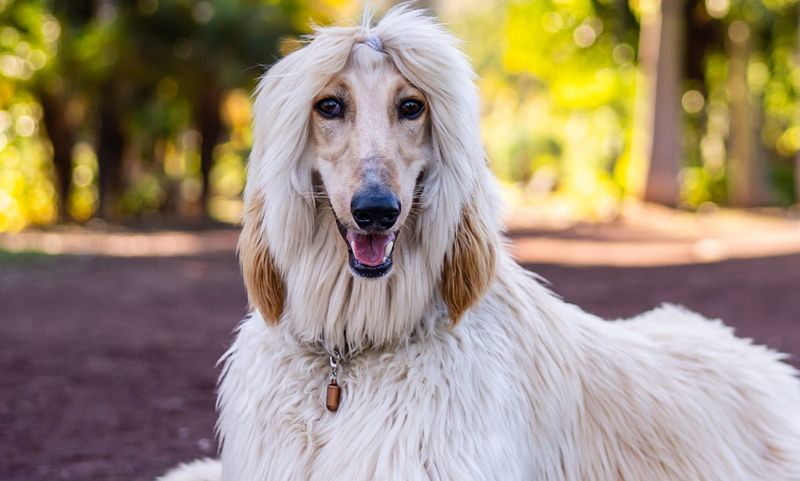
Afghan Hounds are known for their graceful appearance and independent nature. Their aloof demeanor often translates to stubbornness in training.
They require patient and consistent training to overcome their independent streak. Despite their stubborn tendencies, Afghan Hounds are affectionate and loyal to their families.
Maintaining their focus during training is essential, as they can be easily distracted. With the right approach, Afghan Hounds can be obedient and loving pets, known for their elegance and unique personalities.
Scottish Terrier
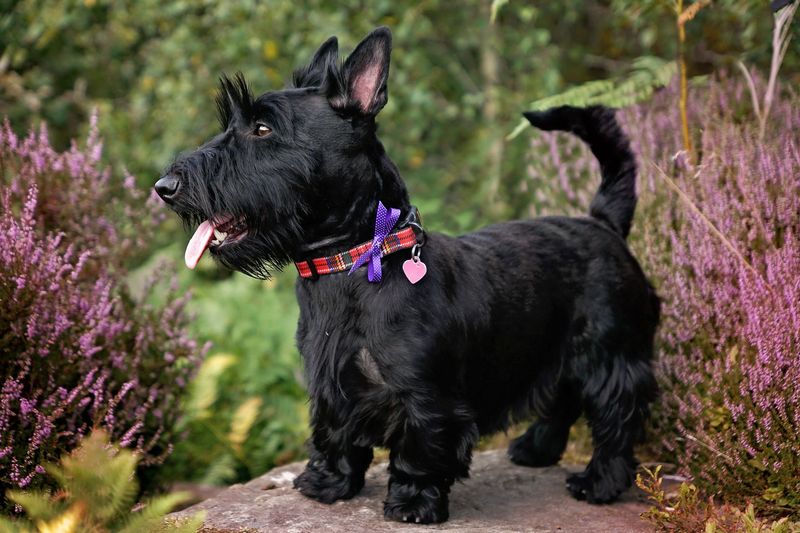
Scottish Terriers, or “Scotties,” are known for their determination and independence. This breed often chooses to think for itself, challenging even the most experienced trainers.
Training a Scottie requires patience and a firm, consistent approach. Positive reinforcement helps in managing their stubborn nature.
Despite their headstrong attitude, Scottish Terriers are loyal and loving companions. They thrive in environments where their intelligence and independence are respected and nurtured. With the right guidance, they form strong bonds with their families.
Pekingese
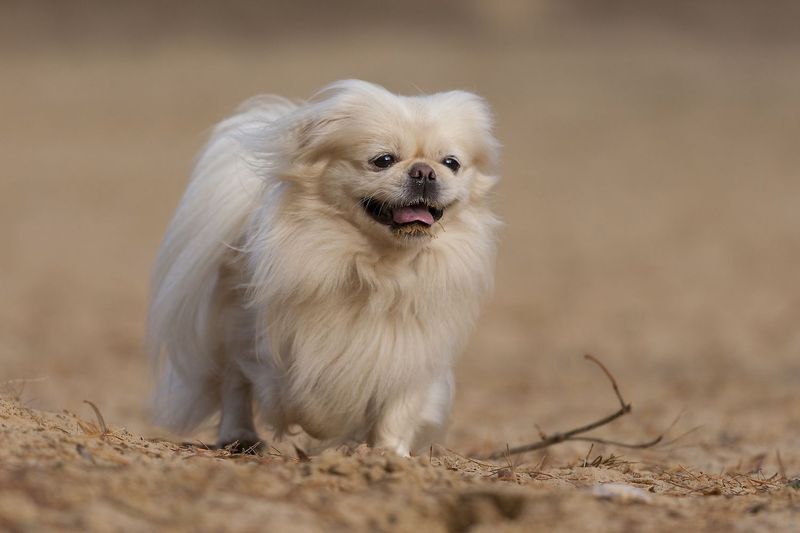
Pekingese are known for their royal demeanor and stubborn nature. This breed often regards itself as the ruler of its domain, choosing when to listen to commands.
Training a Pekingese requires patience and a gentle, consistent approach. They respond well to positive reinforcement and praise.
Despite their stubborn streak, Pekingese are loyal and affectionate pets. They enjoy being pampered and can form strong attachments to their families. With the right approach, they can be well-behaved and delightful companions.
Chow Chow
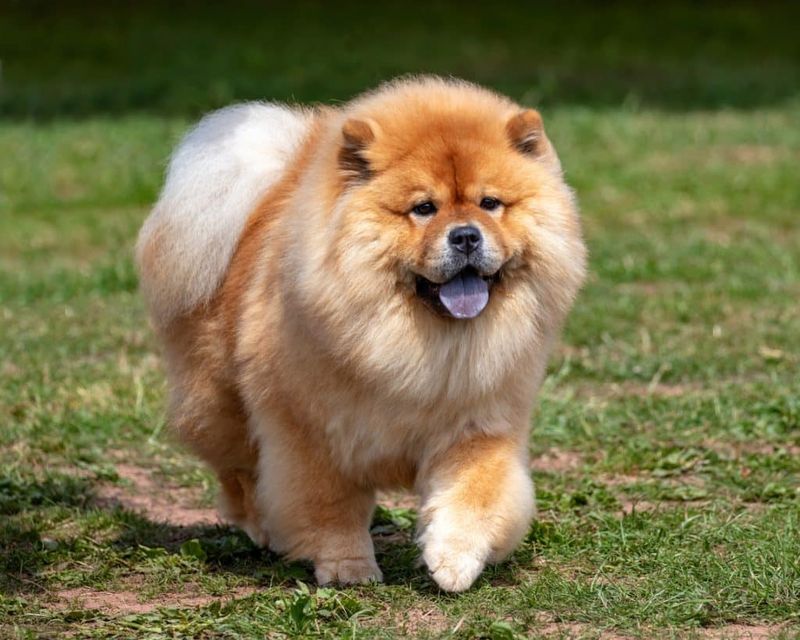
Chow Chows are known for their lion-like appearance and aloof nature. This breed often exhibits a stubborn streak, choosing to follow its instincts over commands.
Training a Chow Chow requires patience and consistency, focusing on building trust and respect. Positive reinforcement is key to managing their independence.
Despite their stubbornness, Chow Chows are loyal companions, protective of their families. They thrive in environments where their dignity and independence are respected, forming strong bonds with those they trust.
Basset Hound
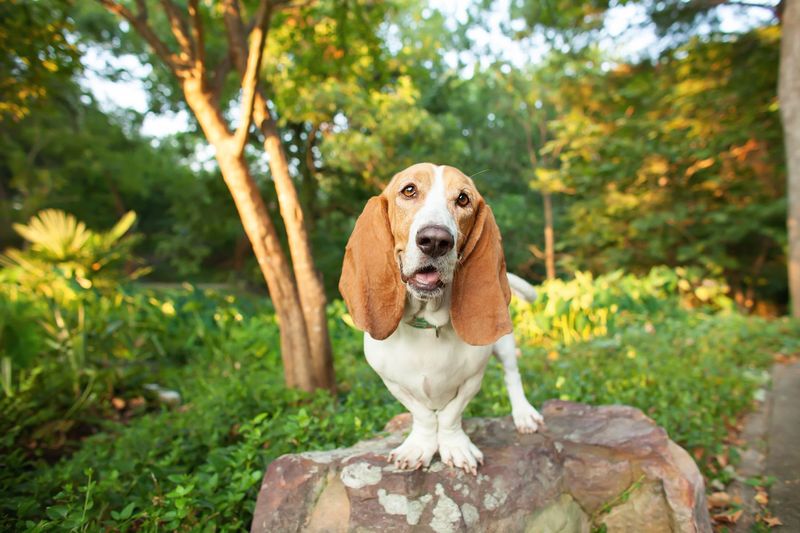
Basset Hounds are known for their laid-back and stubborn nature. Their strong sense of smell often leads them to ignore commands in pursuit of interesting scents.
Training a Basset Hound requires patience and positive reinforcement, as their stubborn streak can be challenging. Early socialization and obedience training are crucial.
Despite their headstrong attitude, Basset Hounds are gentle and affectionate pets. Their charming personalities and loyalty make them wonderful companions for those who appreciate a relaxed and loving dog.
Lhasa Apso
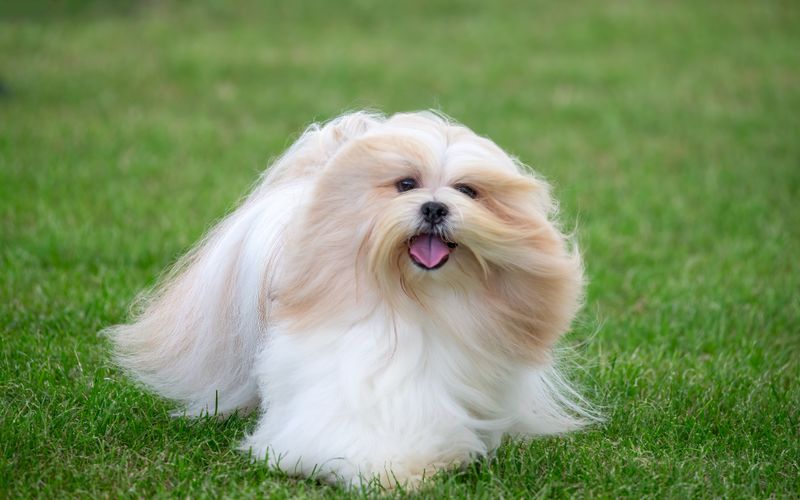
Lhasa Apsos are known for their independence and dignity. This breed often exhibits a stubborn nature, preferring to follow its own path.
Training a Lhasa Apso requires patience and consistency, focusing on positive reinforcement to encourage cooperation. They respond well to kind and gentle guidance.
Despite their stubborn streak, Lhasa Apsos are loyal and loving companions. They thrive in environments where their independence is respected, forming strong bonds with their families. With the right approach, they can be obedient and delightful pets.
Pomeranian
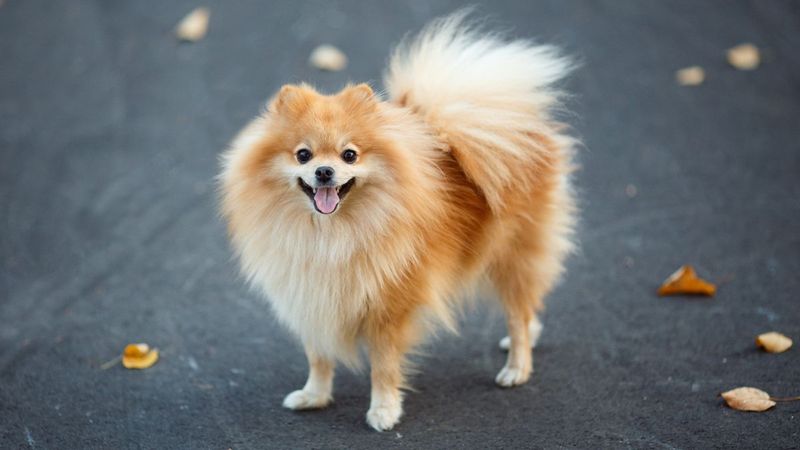
Pomeranians, despite their small size, have a bold and independent personality. Known for their stubbornness, they often choose to ignore commands.
Training a Pomeranian requires consistency, patience, and positive reinforcement. Engaging them with fun and interactive sessions helps manage their stubborn nature.
Despite their headstrong attitude, Pomeranians are affectionate and charming pets. They enjoy being the center of attention and form strong bonds with their families. With the right guidance, they can be both obedient and delightful companions.
Yorkshire Terrier
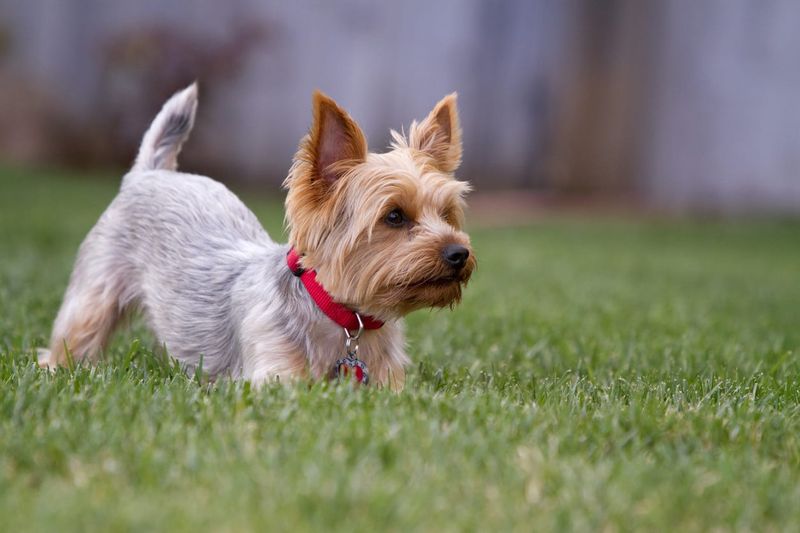
Yorkshire Terriers, or “Yorkies,” are known for their feisty and independent nature. This breed often chooses to follow its instincts over commands.
Training a Yorkie requires patience and consistency, focusing on positive reinforcement and interactive sessions. Early socialization is key.
Despite their stubbornness, Yorkshire Terriers are affectionate companions, known for their loyalty and charm. They thrive in environments where their independence and intelligence are respected, forming strong bonds with their families.
Husky
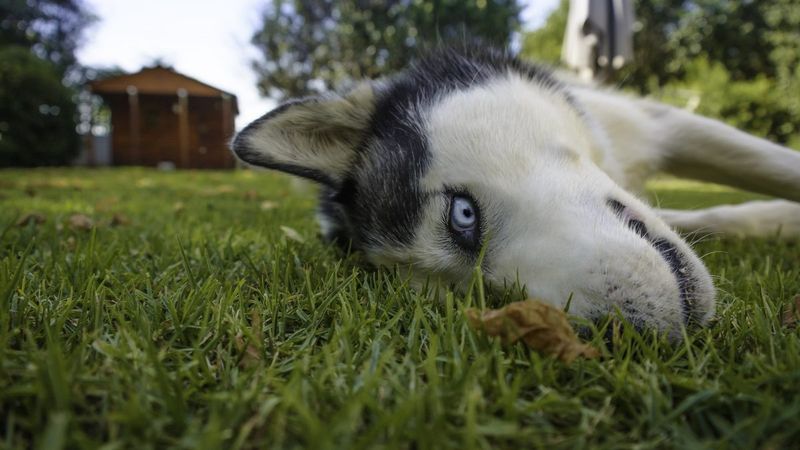
Siberian Huskies are known for their energetic and independent nature. This breed often exhibits a stubborn streak, preferring adventure over obedience.
Training a Husky requires patience, consistency, and engaging methods to maintain their interest. Positive reinforcement is essential in managing their headstrong attitude.
Despite their stubbornness, Huskies are loyal and fun-loving pets. They thrive in active environments where they can explore and play, forming strong bonds with their families.
Mastiff
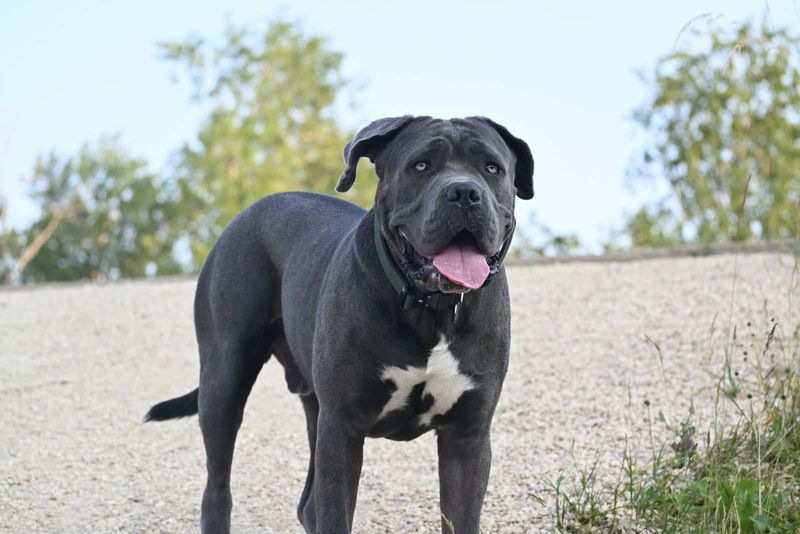
Mastiffs are known for their gentle giant appearance and stubborn nature. This breed often chooses relaxation over activity, ignoring commands when it suits them.
Training a Mastiff requires patience and a gentle, consistent approach. Positive reinforcement helps in managing their stubborn tendencies.
Despite their headstrong attitude, Mastiffs are affectionate and loyal companions. They form strong bonds with their families and thrive in environments where their calm and laid-back nature is appreciated.
Coonhound
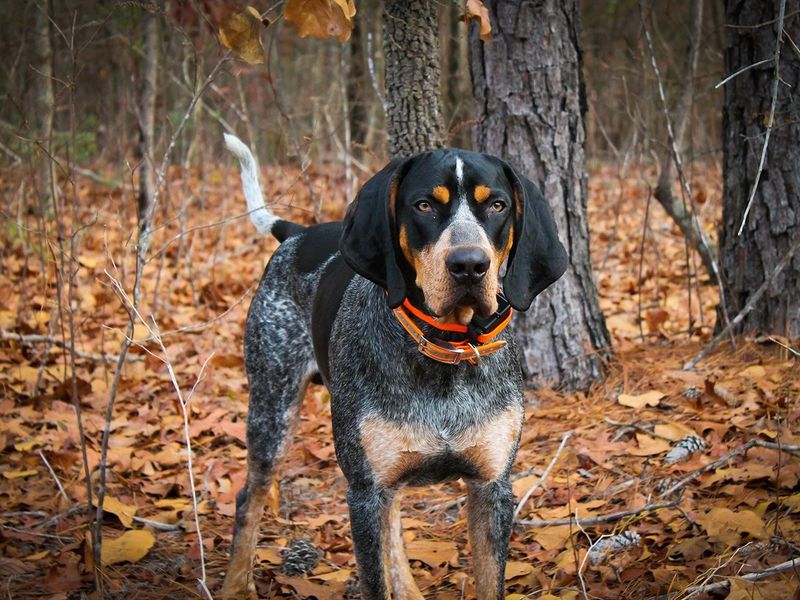
Coonhounds are known for their independent and strong-willed nature. This breed often follows its nose, ignoring commands in pursuit of interesting scents.
Training a Coonhound requires patience and consistency, focusing on positive reinforcement and scent-based activities. Early socialization is key.
Despite their stubborn streak, Coonhounds are affectionate and loyal pets. They thrive in environments where their hunting instincts and independence are appreciated, forming strong bonds with their families.
Bull Terrier
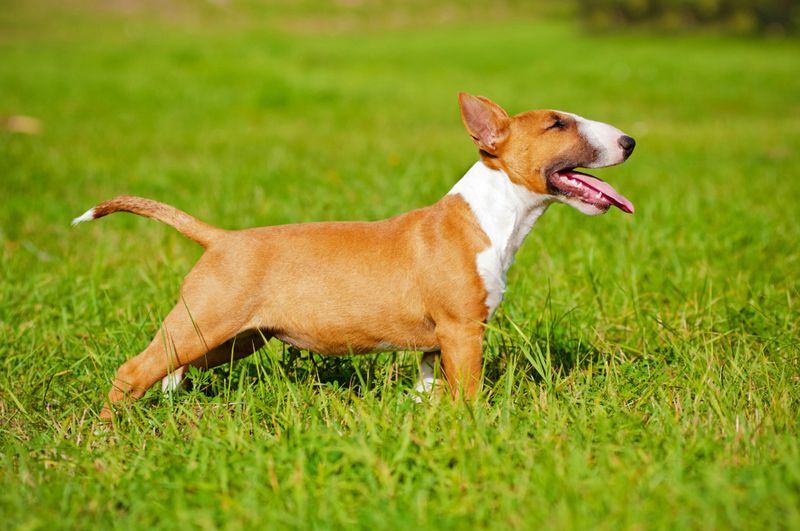
Bull Terriers are known for their playful yet stubborn nature. This breed often prefers to follow its own path, challenging even experienced trainers.
Training a Bull Terrier requires patience, consistency, and engaging methods to maintain their interest. Positive reinforcement helps in managing their headstrong attitude.
Despite their stubbornness, Bull Terriers are loyal and affectionate pets. They thrive in environments where their playful nature is embraced, forming strong bonds with their families.

